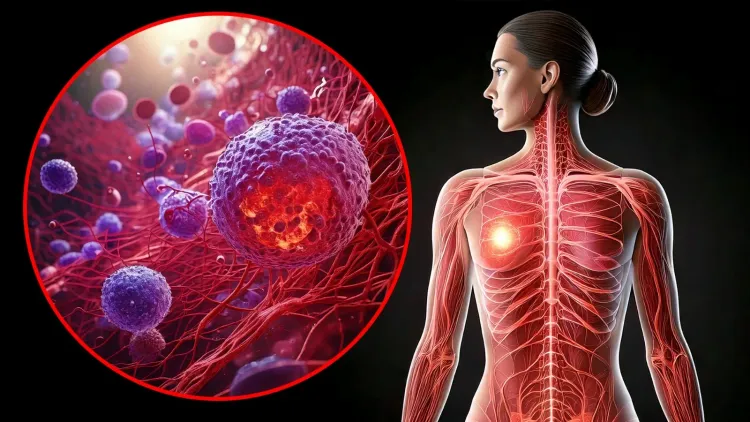Can a Common Antidepressant Shrink Tumour Growth and Combat Cancer?

Synopsis
Key Takeaways
- SSRIs can significantly reduce tumour size.
- They enhance the effectiveness of T cells in fighting cancer.
- Repurposing existing medications could simplify cancer treatment development.
- Combining SSRIs with standard therapies may improve outcomes.
- Further research is needed to assess real-world patient outcomes.
New Delhi, May 22 (NationPress) - A team of researchers from the United States has discovered that a popular antidepressant medication could potentially reduce tumour growth and boost the immune system's capacity to fight cancer.
Investigators from the University of California, Los Angeles (UCLA) have revealed that selective serotonin reuptake inhibitors (SSRIs), which are primarily known for their effects on the brain, can significantly strengthen the ability of T cells to combat cancer.
In a study published in the journal Cell, the researchers evaluated the effects of SSRIs on both mouse and human tumour models representative of melanoma, breast, prostate, colon, and bladder cancers.
The results indicated that treatment with SSRIs led to an average tumour size reduction of over 50 percent and enhanced the effectiveness of cancer-fighting T cells in eliminating cancer cells.
Dr. Lili Yang, the senior author and a member of the Eli and Edythe Broad Center of Regenerative Medicine and Stem Cell Research at UCLA, stated, "SSRIs not only uplift our mood but also invigorate our T cells as they battle tumours."
"These medications have been safely administered for decades to treat depression, making their repurposing for cancer treatment a far simpler task than creating a new therapy from scratch," Yang added.
The exploration into serotonin's role in cancer treatment began when Yang and her team observed that immune cells from tumours possessed increased levels of serotonin-regulating molecules.
Initially, they concentrated on MAO-A, an enzyme involved in serotonin breakdown along with other neurotransmitters such as norepinephrine and dopamine.
However, due to safety concerns associated with MAOIs, including severe side effects and interactions with certain foods and medicines, the focus shifted to SERT, another serotonin-regulating molecule.
Dr. Bo Li, a research scientist in Yang's lab, explained, "SERT specializes in transporting serotonin, making it a prime target because SSRIs, which act on it, are widely used with minimal side effects."
Additionally, the study found that combining SSRIs with conventional cancer therapies yielded improved treatment outcomes.
This combination not only significantly reduced tumour size in all treated mice but also achieved complete remission in some instances, according to the researchers.
To validate these results, the team plans to examine whether cancer patients taking SSRIs experience better health outcomes.








